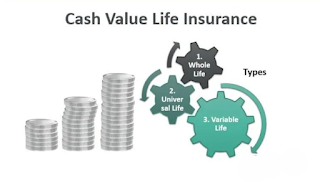Cash Value Life Insurance
Cash Value Life Insurance
Cash value life insurance is a type of permanent life insurance that has a savings component. As you pay your premiums, a portion of the money goes towards the death benefit, which is paid out to your beneficiaries when you die. The other portion of the money goes into your cash value account, which grows tax-deferred over time. You can borrow against your cash value or withdraw it, but there may be fees associated with doing so.
Cash value life insurance can be a good option for people who want to:
-Build up an emergency fund
-Save for retirement
-Pay for college
-Cover long-term care expenses
Cash value policies build value as you pay your premiums. Insurer will absorb the cash value of your whole life insurance policy after you die, and your beneficiary will get the death benefit. You can borrow or withdraw money from your life insurance policy. You can also use the money to pay for your premiums.
Life insurance companies often offer these cash value loans at interest rates lower than a traditional bank loan. Of course, you're not obligated to pay back the loan since you're essentially borrowing your own money.
The difference between death benefit and cash value is that: permanent life insurance policies offer a death benefit and cash value. The death benefit is money that is paid to your beneficiaries when you pass away.
Cash value is a separate savings component that you may be able to access while you are still alive.
However, it's important to compare different policies and understand the fees and charges associated with them. You should also consider your financial situation and goals before deciding whether or not cash value life insurance is right for you.
#benewinsurance #insurtech #inclusiveinsurance #insurance #reinsurance #takaful




Comments
Post a Comment
Thank you for making this valuable comment.